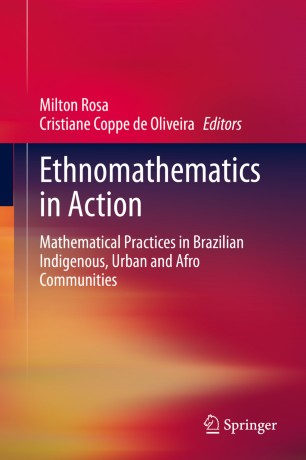

Most ebook files are in PDF format, so you can easily read them using various software such as Foxit Reader or directly on the Google Chrome browser.
Some ebook files are released by publishers in other formats such as .awz, .mobi, .epub, .fb2, etc. You may need to install specific software to read these formats on mobile/PC, such as Calibre.
Please read the tutorial at this link: https://ebookbell.com/faq
We offer FREE conversion to the popular formats you request; however, this may take some time. Therefore, right after payment, please email us, and we will try to provide the service as quickly as possible.
For some exceptional file formats or broken links (if any), please refrain from opening any disputes. Instead, email us first, and we will try to assist within a maximum of 6 hours.
EbookBell Team

4.3
88 reviewsThis book presents a collection of ethnomathematical studies of diverse mathematical practices in Afro-Brazilian, indigenous, rural and urban communities in Brazil. Ethnomathematics as a research program aims to investigate the interrelationships of local mathematical knowledge sources with broader universal forms of mathematics to understand ideas, procedures, and practices found in distinct cultural groups. Based on this approach, the studies brought together in this volume show how this research program is applied and practiced in a culturally diverse country such as Brazil, where African, indigenous and European cultures have generated different forms of mathematical practice.
These studies present ethnomathematics in action, as a tool to connect the study of mathematics with the students’ real life experiences, foster critical thinking and develop a mathematics curriculum which incorporates contributions from different cultural groups to enrich mathematical knowledge. By doing so, this volume shows how ethnomathematics can contribute in practice to the development of a decolonial mathematics education.Ethnomathematics in Action: Mathematical Practices in Brazilian Indigenous, Urban and Afro Communities will be of interest to educators and educational researchers looking for innovative approaches to develop a more inclusive, democratic, critical, multicultural and multiethnic mathematics education.